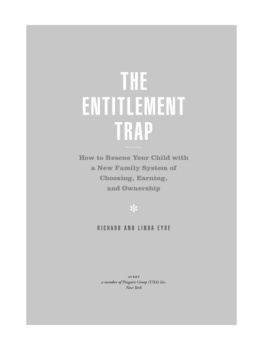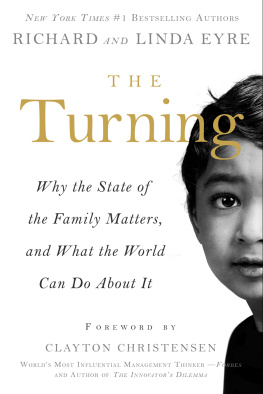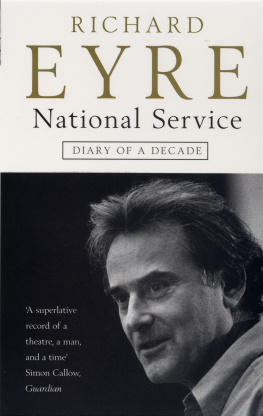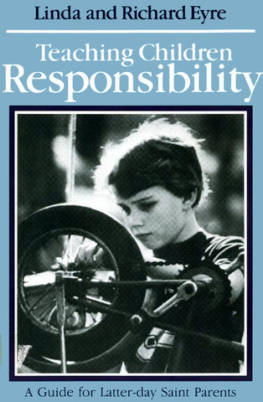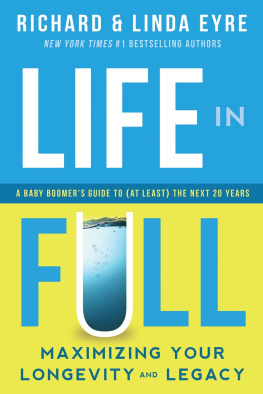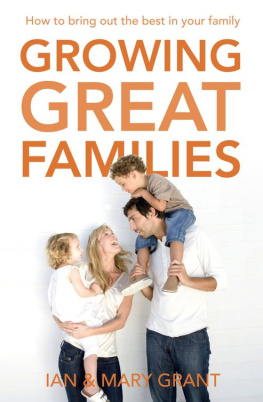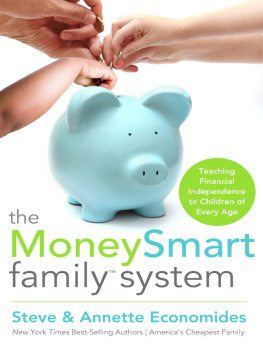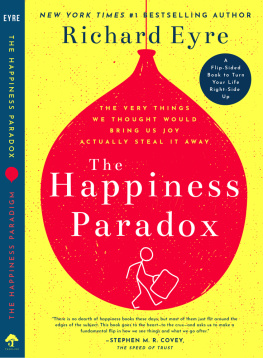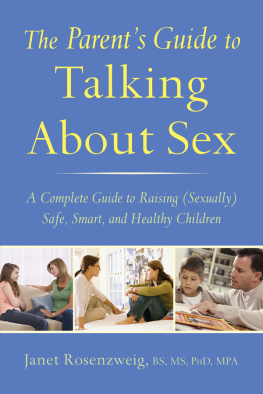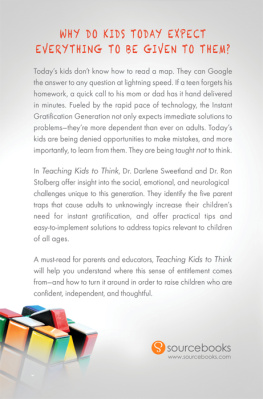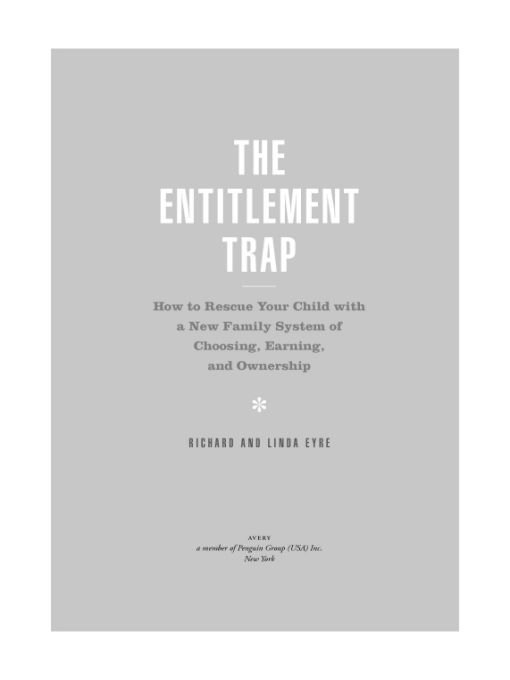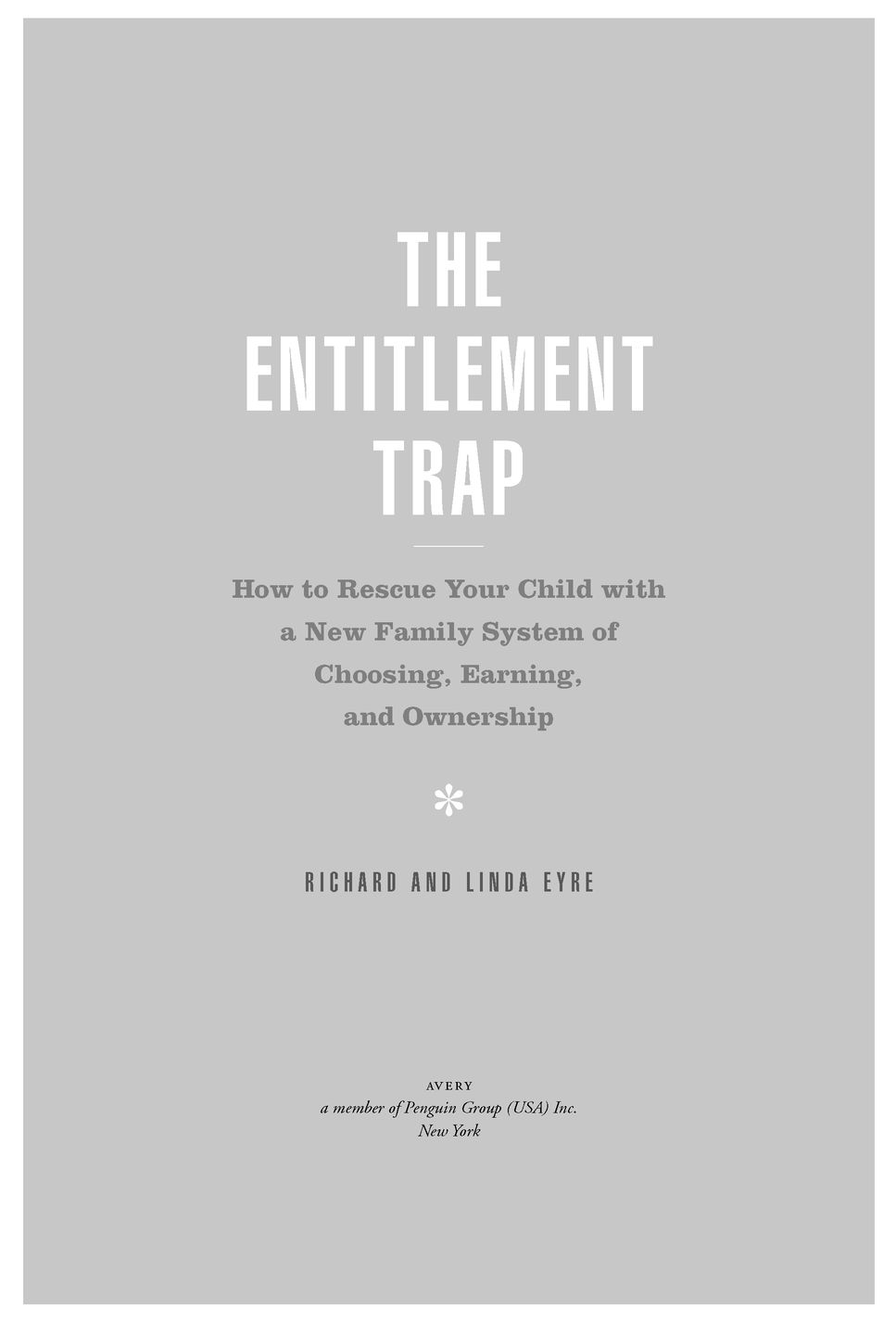Table of Contents
OTHER BOOKS BY RICHARD AND/OR LINDA EYRE
(a partial list)
5 Spiritual Solutions for Everyday Parenting Challenges
The Three Deceivers
Teaching Your Children Values
How to Talk to Your Child About Sex
Empty-Nest Parenting
(with Saren Eyre Loosli)
Spiritual Serendipity
Three Steps to a Strong Family
Lifebalance
Foreword
Stephen R. Covey
THE WORLD we live in is changing fast, and the world our children will inherit will be almost unrecognizably different and more difficult. Are we preparing them for it? Will they have the personal and financial skills to succeed? Will they have the incentive and the self-motivation to find their best selves?
Just as the Eyres brilliant number one bestseller Teaching Your Children Values provided a road map for a whole generation of parents in the nineties, their new work, The Entitlement Trap, gives todays parents a wake-up call and a warning about the trap of indulgence and instant gratification they may be creating for their children. Then it shines breakthrough clarity on what kids will need to cope with our new and unpredictable financial realities, and outlines a remarkable family economy that teaches kids to work and to accept responsibility.
Here is a new approach for a new generation of parents. I predict that it will become the standard for families throughout the world who want to give their kids the training and the tools to succeed financially, emotionally, and spiritually in the economic hurricane of the twenty-first century.
In the first half of the book, you will learn how to make your kids economically savvy and financially independent.... In the second half, you will learn that the family economic model is just the framework and the metaphor for lessons even more important.
Introduction
One Reason Parenting Is Harder Now Than It Has Ever Been
QUESTIONS PARENTS ASK US
For the last decade or so, as a result of the interest in some of our books, we have traveled the world speaking to parents about their kids, about their families, and about their parenting. We have given hundreds of lectures and seminars in virtually every state in the United States and in more than fifty other countries to parents belonging to every religion and political persuasion and every economic and social demographic you can imagine.
And in this often divided and polarized world we live in, heres something very cool: Parents everywhere are much the same. No matter where or how they live, parents want to give their kids good values, a good education, and a chance to reach their full potential. And no matter what their philosophy or creed or politics are, they want to keep their children safe and protected from the world. One dad in Indonesia told us that his definition of a conservative was a flaming liberal with a teenage daughter.
So we dont have to change our presentation very much when we are with a group of Hindu parents in India, or Buddhist families in Vietnam, or Muslim moms and dads in Saudi Arabia. Their hopes and worries for their children are essentially the same, so our message to them is pretty much the same.
Let us repeat that thought, because it is quite amazing! Whatever other differences they may have, political, economic, or religious, when it comes to how they think of their children, what they hope and dream for them, and their most basic concerns, all parents are essentially alike. They love their kids, and that one thing gives them more in common with each other, and with us, than all the differences combined.
Whatever other differ-
ences they may have,
political, economic, or
religious, when it comes
to how they think of
their children, what
they hope and dream for
them, and their most
basic concerns,all par-
ents are essentially alike.
Ironically, while parenting is perceived by the majority of parents everywhere as their most important job, it is a field in which we get very little instruction. Most parents dont lack the desire or the commitment to be good parents, they just need a guiding philosophy and ideas about how to implement it. And they need them fast, because parenting, after all, is a fairly short-term proposition. In about eighteen years, about a fifth of our lives, a child is grown and gone, leaving too many of us wondering what we could have done better while they were here. By the time we figure parenting out, we are pretty much done doing it! Since we dont have time to work it all out for ourselves, to learn entirely by trial and error, to come up with our own completely self-discovered set of ideas that work, one goal of this book is to do some of the discovering for you! We know you will adjust and adopt the whole ownership approach to your particular situation and to your unique and individual kids, but the basic structure will be there for you, as a start and as a proven foundation.
Since all parents everywhere basically have the same parental aspirations and face the same parenting challenges, their questions to us are always much the same:
Why wont my kids put in the effort at school to reach their full potential?
Why wont they pick up their clothes or put away their toys?
Why do they sometimes make such obviously bad and foolish choices?
Why do they think they need to have everything their friends have?
Why is it so hard for me to influence my kids... and so easy for their peers to influence them?
Why cant I get them to set some goals and to start feeling responsible for their lives? Or to work and to follow through on their tasks?
Why cant I get them away from games and gadgets, from cell phones and headphones?
Why is it so hard to communicate with my kids? And to teach them responsibility?
Perhaps Amy Chua and her Tiger Mother devotees would disagree and say that these are only the questions of indulgent Western parents who are raising spoiled and entitled kids, and that other parenting models, such as her Chinese one, are much more demanding and produce much more disciplined and accomplished children. But our experience suggests otherwise. These are the questions that parents everywhere are asking, including middle-class parents in China and the rest of Asia, and the vast majority of them do not want to give their children perfection-demanding discipline at the expense of love and self-esteem and a real childhood.
But the interesting thing is that these questions, shared by todays parents all over the world, were not the prime questions of parents one or two generations ago. Yesterdays kids had a much greater sense of personal responsibility than todays kids do. Think how things have changed: When your grandparents were young, children often worked for their parents; now parents work for their kids. When your parents were children, it took more work to keep a household going than it does now, and kids did a lot of that work. And even when you were a child, there was some sense that kids owed a lot to their parents; now parents seem to think they owe everything to their kids.

